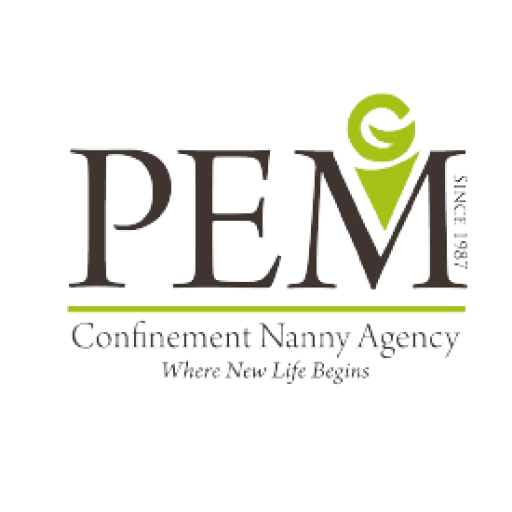[email protected] ♦ (+65) 6293 9249 ♦ Mon - Sun : 10:00AM - 7:00PM
Breastfeeding vs Bottle-Feeding

Mummies, we are sure that you already know that breast milk is the best source of nutrition for your baby. However, if this particular article piques your interest in the first place, we are guessing you may have certain concerns or difficulties about exclusively breastfeeding, and you’re looking to use formula-feeding as a complement or alternative to breastfeeding.
What makes breastfeeding difficult or impossible?
We understand how there are special circumstances where mothers find it difficult or completely unable to breastfeed, which may lead their health professionals to introduce formula-feeding to their baby. Some of these circumstances include the mother having:
- Low supply of breast milk
- Breast discomforts that makes breastfeeding or pumping difficult
- Medication that pose a harm to baby when passed into breast milk
- Radiation therapy in any form
- HIV infection
- Serious illness such as heart failure
That said, this doesn’t mean that if you fall into any of these categories, you wouldn’t be able to breastfeed for sure. As every mother’s health condition is different, the only way to find out is to consult a doctor in person, and discuss what’s best for you and your baby with your doctor.
How is breast milk and formula milk different?
So what makes breast milk and infant formula different? Let’s explore this by looking at each of their general components:
Breast Milk
The composition of your breast milk changes gradually and this is stimulated by frequently breastfeeding your baby. Colostrum is the first milk that is produced by your body in the first week after childbirth, and your colostrum will gradually turn to transitional milk, and eventually to mature milk from around the 10th day. Your breast milk nourishes your baby with thousands of beneficial components, some of them includes:
- Nutritious fatty-acids that is essential to develop your baby’s brain, eyes, nervous system
- Stem cells that help your baby’s organs to develop and repair
- Antibodies and white blood cells that protect your baby against illness and fight infection
- Hormones that help your baby develop healthy sleep-wake patterns and regulate appetite
- Hormones that promote bonding between you and your baby
- Enzymes and good bacteria that protect your baby’s digestive system and strengthen immune system
- Prebiotics that support a healthy gut for your baby
The best part is, the component of your breast milk changes to adapt to your growing baby’s changing needs. For example, research suggests that if your baby falls sick, your body actually makes extra white blood cells and antibodies and sends it to your milk to help your baby fight infection.
Infant Formula Milk
For the reasons stated above, breast milk remains the best source of nutrition for your baby. That said, infant formula milk still comes in as a safe option for your baby if you’re unable to breastfeed. Furthermore, you can be rest assured that the approved infant milk formulas in the market today contain adequate nutrition and are safe for your baby to consume. If you decide to feed your baby formula milk, do consult your doctor on which formula to choose.
According to HealthHub by the Ministry of Health Singapore, there are three types of infant milk formula to cater to babies with different needs:
- Cow’s milk-based formulas: This is the majority of the baby formula milk that are in the market today. As regular cow’s milk contains a high concentration of protein and minerals that are very difficult for infants to digest, and it does not come with proper nutrients that babies need, cow’s milk-based formulas have been processed to suit a baby’s needs better. In particular, the formula has been treated to improve protein digestion and lower risks of allergies, and lactose and vegetable oil has been added to ease digestion. Fortified iron is also added to the formula to meet the baby’s iron requirements.
- Soy formulas: For babies who are unable to digest lactose in cow’s milk formula, doctors often recommend soy milk as an alternative. The type of proteins and carbohydrates in soy formulas are different from cow’s milk formula, so remember to discuss with your doctor before giving it to your baby.
- Specialised formulas: For infants with certain conditions such as low birth weight, inability to digest fat and issues with regurgitation, there are specialised formulas in the market to cater to these special needs. However, again, please consult your paediatrician and get advice on how to choose the right formula for your little one.
Things to Take Note When Preparing Infant Formula
When preparing your baby’s infant formula using milk powder, it’s important for you to follow the ratio of powder to water as advised by your doctor or stated on the packaging. Feeding your baby with too little or too much formula may harm your baby’s health and development.
Also, remember to cover and store the formula as per recommended on the packaging to preserve its freshness. If you need further guidance or advice regarding this matter, be sure to talk to your paediatrician.
The Takeaway
Mummies, when the need arises, feeding your baby with formula milk doesn’t make you less worthy as a mother in any way. The truth is, every mother and baby is different, so what works well for others might not be the same case for you.
Whether you’re choosing to exclusively breastfeed, exclusively bottle-feed, or use both methods to complement each other, the best method is the one that works best for you and your baby’s needs and lifestyle.
Get the Best Care For You & Your Newborn During Confinement
The care you and your newborn gets in the first few weeks after childbirth can determine both of your well-being for the many weeks that follow. PEM confinement nanny agency Singapore gives you and your newborn the best care during confinement with our experienced and well-trained confinement nannies.
Instead of leaving your home and staying at a Singapore confinement centre, PEM confinement nannies take care of you and your baby in the comfort of your own home. Our professional nannies take care of your newborn by helping with day and night feeding, changing diapers, bathing and updating your baby’s daily log. On the other hand, PEM confinement nannies also prepare your daily confinement meals and confinement herbal bath water to help improve your postpartum recovery.
Discover more ways our confinement nannies are able to assist you during your confinement. Enquire now at +65 6293 9249, we are happy to help (reachable from 10a.m. to 7p.m. daily).







